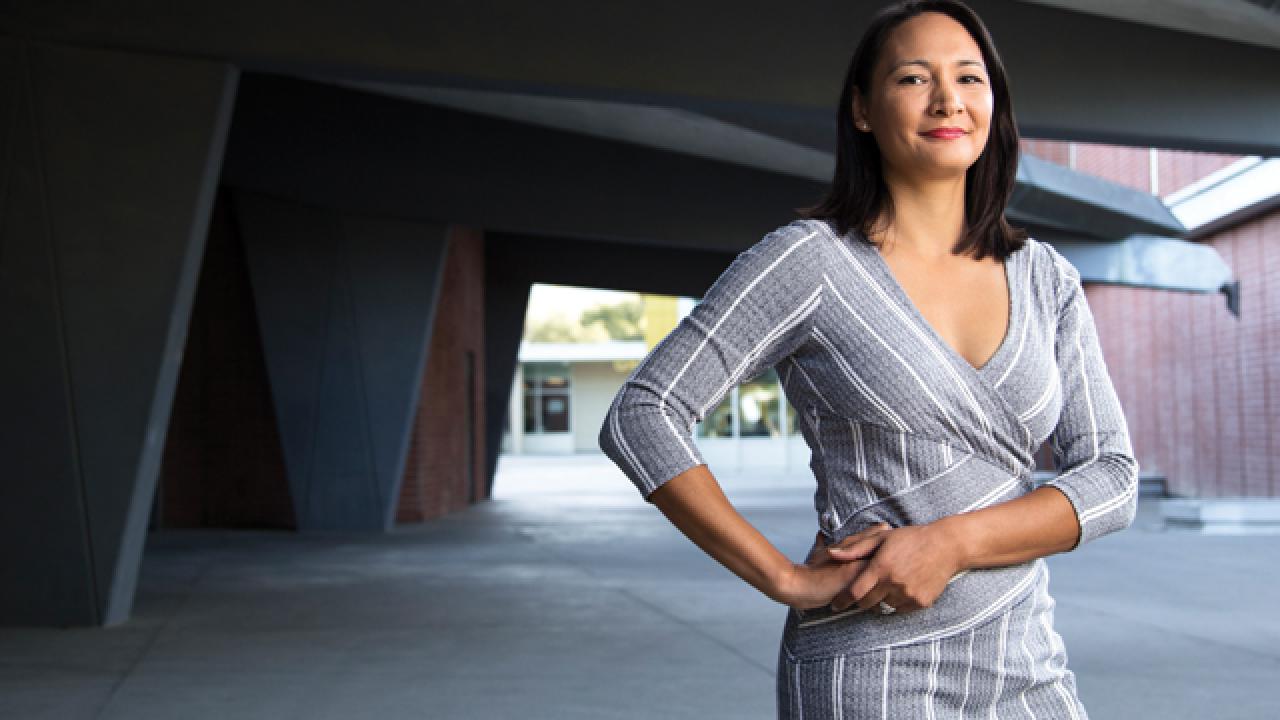
Powered by Women—Bernadette Austin
She has a background in health care, an expertise in public finance and a passion for achieving community improvement through funding strategies, but the metaphor that best illustrates Bernadette Austin's current role comes from a children's fable.
"I call it making the 'stone soup,'" she says of one of her chief duties as associate director for the UC Davis Center for Regional Change. "We come together with different partners. The local government's got these types of resources, and the university bas these resources and that foundation might have these resources and a neighborhood group bas other resources, and we put all of our resources together-someone brings potatoes and someone brings carrots and someone brings broth – and now we have soup. Now we have a meal."
The "meal'" that Austin is serving is affordable housing for the Sacramento region, but her motivation and the means by which she's executing her vision bring a unique perspective to an often hot-button topic. "So much of my passion for this housing work is informed by my own personal experience," she says. " I experienced a significant amount of housing instability as a child. I lived with various relatives, slept on a lot of couches and floors; I've slept in cars, I've lived in hotels. I understand that people who are struggling with housing usually have a lot of factors at play. In my case, as a child, those factors were outside my control."'
She initially went to college with hopes of becoming a cardiologist, but as she gained experience in health care she grew frustrated with typical treatment protocols. "We would 'treat people' (she's miming air quotes here)-they'd have heart disease or issues resulting from obesity or diabetes; or on the mental health side they'd be struggling with substance abuse, depression, anxiety-we'd treat them and send them right back into the communities that were creating these problems."
It was this background that led Austin to take a closer look at affordable housing solutions. "How are our communities built?'" she wondered. "Are there sidewalks, do people have opportunities to live in safe, affordable housing, do they have jobs that are rewarding, can they volunteer in their community?"
She ditched the cardiologist plan in favor of an undergraduate degree in public health and a master's degree in community development, then worked as a housing finance analyst at Sacramento Housing and Redevelopment Agency and as a project manager at Domus Development before joining the Center for Regional Change.
"The thing I loved the most was working on really novel funding opportunities," she says, citing La Valentina Apartments on 12th and D streets in a high-crime area of the Alkali Flat neighborhood. "We funded that in part with recovery dollars under the Obama administration in 2008, and we partnered with both Regional Transit and SMUD. Plus it was a near net-zero energy building.'"
At the time this story is being written, Austin is awaiting word on the approval of a $30 million grant to fund the Oak Park Promise Neighborhood, a 15-year initiative enacted by 40 community partners to improve Oak Park.
“I’m passionate about investing in community and social change," she says. "Often, people have really great ideas and a tremendous amount of passion, but that's just not enough. It's not enough to have a champion or to have people coming together; you have to have the resources. What I've gotten really passionate about recently is finding new ways to do this. We have to be more creative."
Read about the other women featured in the November 2017 edition of Sac Magazine.
